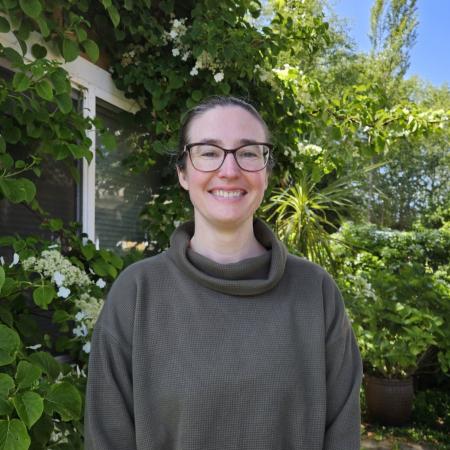Single- and multi-variable calculus
Approximately 4 quarters required
Single variable
- Derivatives of polynomial, rational, trigonometric, exponential, and logarithmic functions
- Maximum-minimum problems
- Curve sketching, and other applications (velocity, acceleration)
- Antiderivatives and simple motion problems.
- Definite integrals,
- Integral tables and basic techniques of integration
- Polar coordinates
- Applications to areas, volumes, force, work
- Growth and decay problems.
- Indeterminate forms
- Improper integrals
- Sequences and series, especially Taylor's formula and power series
Multi variable
- Vector functions and curves in two and three dimensions
- Partial derivatives
- Gradients
- Directional derivatives
- Multiple integrals in rectangular, polar, cylindrical, and spherical coordinates
- Physical and geometric applications
Linear algebra
One course required
- Mathematical operations with matrices (addition, multiplication)
- Matrix inverses and determinants
- Solving systems of equations with matrices
- Euclidean vector spaces
- Eigenvalues and eigenvectors
- Orthogonal matrices
- Positive definite matrices
- Linear transformations
- Projections
- Linear dependence and independence
- Singular value decomposition
Mathematical statistics
One course required; two quarters or one year strongly preferred
- Combinatorics and basic set theory notation
- Probability definitions and properties
- Common discrete and continuous distributions
- Bivariate distributions
- Conditional probability
- Random variables, expectation, variance
- Univariate and bivariate transformations
- Convergence of random variables: in probability, in distribution, almost sure
- Central Limit Theorem, Laws of Large Numbers
- Estimation: bias, MSE, consistency, sufficiency, maximum likelihood, method of moments, UMVUE, Rao-Blackwell Theorem, Fisher Information
- Hypothesis testing: significance level and power, Neyman-Pearson lemma, Likelihood ratio tests
- Confidence Intervals: definitions, duality with hypothesis tests
Applied statistics
At least one applied statistics course is preferred, but not required.
Advanced calculus
M.S. applicants interested in the Ph.D. are strongly encouraged to take advanced calculus (sometimes called "mathematical analysis" or "real analysis");
Applicants to the Ph.D. program must have this prerequisite.
- Sequences and series
- Continuity
- Limits of functions
- Uniform continuity
- Differentiation
- Taylor's theorem
- Lim sups and lim infs
- Riemann integration
- Basic methods of mathematical proofs, including epsilon-delta proofs, proof by contradiction, and mathematical induction.



